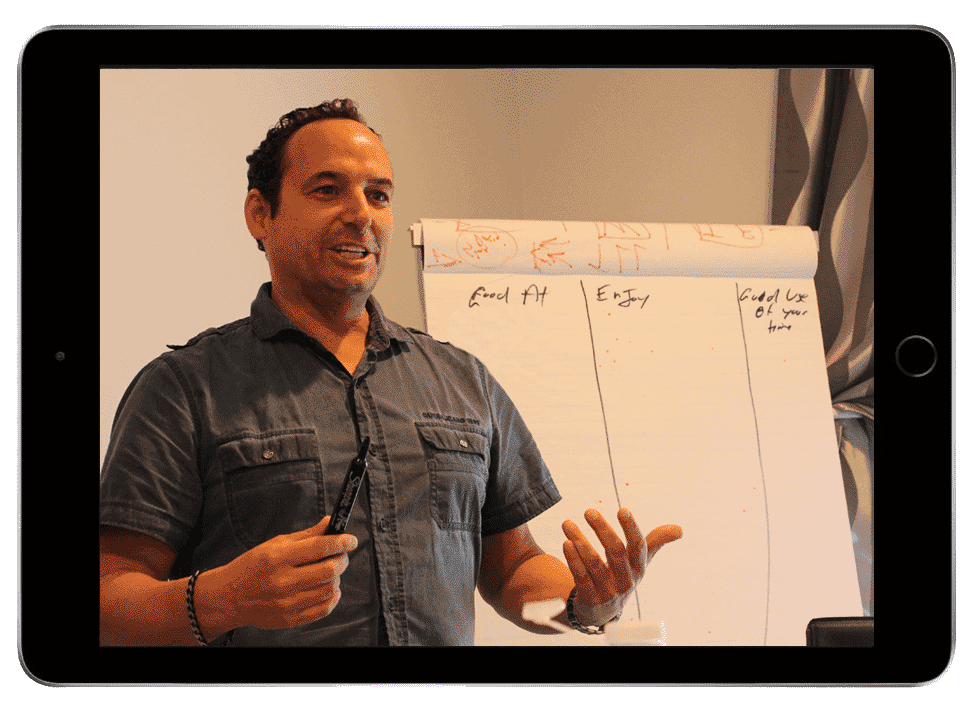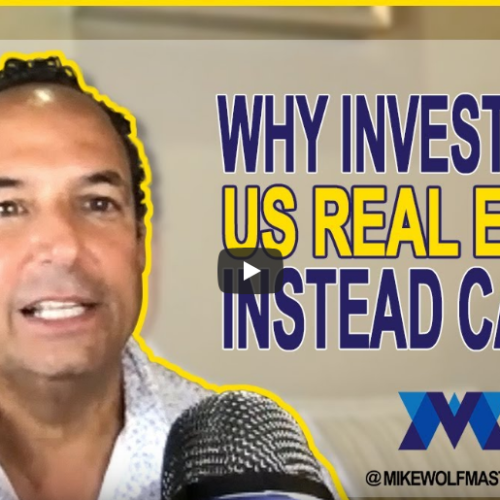Get New Posts via Facebook MessengeriTunes
Summary
Mike Wolf is here again from Mike Wolf Mastery. Today, I’m coming to you from Valencia, Spain. I want to answer the question which I get asked an awful lot, and the question is “what a tax lien is.”
First and foremost, the counties across the United States, they need the property tax dollars because they use that to pay for their schools, police force, fire departments and many more.
When somebody hasn’t paid their property taxes, they need a solution to come up with this money as quick as possible so that all of those institutions can be kept going. They have different ways of dealing with it including lien, deeds, and redeemable deeds. Today, we’re going to talk about the liens.
It’s a common strategy that the counties use. Counties will deal with this stuff differently depending on which county you’re looking at, but I want to give you a general overview, birds-eye view, of what a lien is. Let’s say a person owes a $1,000 (USD) in property tax. They’ll get something in the mail saying, “Your taxes are due on June first,” for example, “If you pay it on June first, you owe us $1,000 (USD), but if you’re late, we’re going to assess a penalty or an interest.” Usually, there is some sort of penalty involved if they pay late. Let’s just say it’s 10%.
Now, they’re going to get something saying, “Hey, if you pay on June first, it’s $1,000 (USD). If you’re late, we’re going to assess a 10% penalty. “This 10% penalty might be per year; it might be assessed the day after they’re late. There’s a whole bunch of different ways. I’m just going to talk generalities right now because there’s a lot of different ways it might be dealt with.
Let’s say it was a 10% flat rate penalty. Now, that taxpayer owes– After June first; they’re late, and they now owe $1,100 (USD) in property taxes. That’s great, but the county still doesn’t have their money. They still need that money to keep their schools open. They can’t tell their police chief, “We’ll pay you as soon as Mr. Jones pays his tax bill.” They can’t do that.
What they do is to create some opportunity for an investor, because we can go and pay $1000 (USD), we can pay that person’s taxes, and when that person goes to pay their $1,100 (USD), the county is going to send that money to you. If you invested $1,000 (USD), you get $1,100 (USD) back. That’s a straightforward example using round numbers.
Sometimes, the counties will have auctions, and we have what’s called bidding down the interest rate. That means maybe the interest rate starts at 10%, but then somebody says, “I’d be willing to do it for 9%. I’d be willing to do it for 8%.” Then, whoever’s willing to take the least amount of interest gets that. Sometimes it’s done with what’s called OTC or over the counter. They have a catalog of all these delinquent taxpayers, and you could buy the ones that you want.
In theory, it sounds great. “I put out $1,000 (USD), I get $1,100 (USD).” The county’s doing all the heavy lifting for you because they’re the ones dealing with the taxpayer, it’s not you.
Typically, you’re not bugging these people. The county is the one sending them notices saying, “Hey, you’re due.” Also, there’s a deadline. There’s a redemption period. They only have a certain amount of time in which to clear their tax bill up. Otherwise, you could potentially foreclose and get the property. I know that sounds all amazing in theory, but there are lots of things that can go wrong.
For instance, you might be buying a lien on a piece of land that’s landlocked, meaning that, to get to your property, you have to walk through other people’s property. You can’t build anything on it because you don’t have a passage to get to it unless you take a helicopter in. There’s stuff like that which I see all the time. Or maybe it’s a piece of land, and it has been contaminated. Maybe there’s an oil spill. There’s some due diligence that you have to do before you go out and randomly buy one of these tax liens.
I can’t go into all the details here because there are things that you need to know. I do four-days training on how do you do tax liens, how do you do tax deeds, how do you do renewable deeds? I offer this once every year or two; we do live training. If this is something you’re interested in, where I can go into all the details, teach you how to do this stuff safely, accurately, and profitably, you might want to click the link below that’s going to take you to my webpage where I talk in detail about this subject.
There are so many different ways to do it. The bottom line is to be very careful. Make sure that you know what you’re getting yourself into. Don’t be just like, “It’s straightforward. I pay a $1,000 (USD), I get $1,100 (USD),” because it’s not that simple.
Most times, if you have an opportunity to get that property, it looks like a smoking deal on paper, and sometimes it is, but more often than not, there’s some danger. There’s some other stuff that you need to check before you get stuck with this property. You want to make sure that what you acquire is an asset, not a liability. I hope you found that helpful. If you did, please subscribe to my YouTube channel. Like this, and share it with your friends. Once again, I’m Mike Wolf.
I look forward to seeing you soon.
QUOTES TO CONSIDER
[Follow Mike on Instagram for tons of great quotes]
Mike







